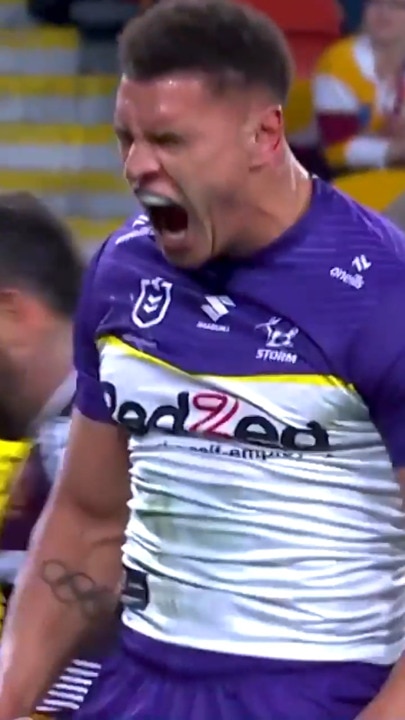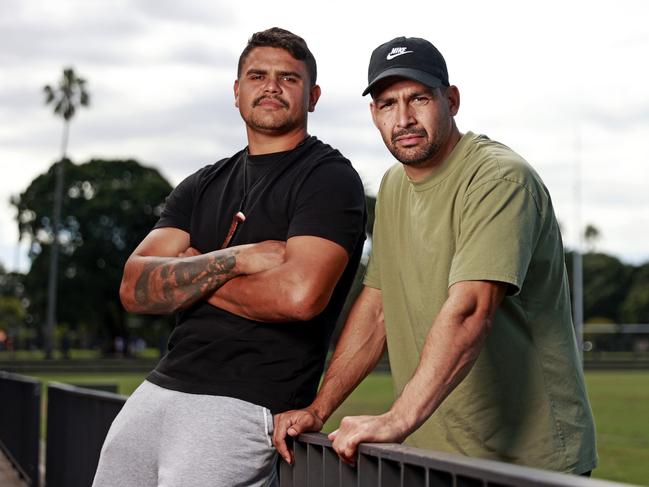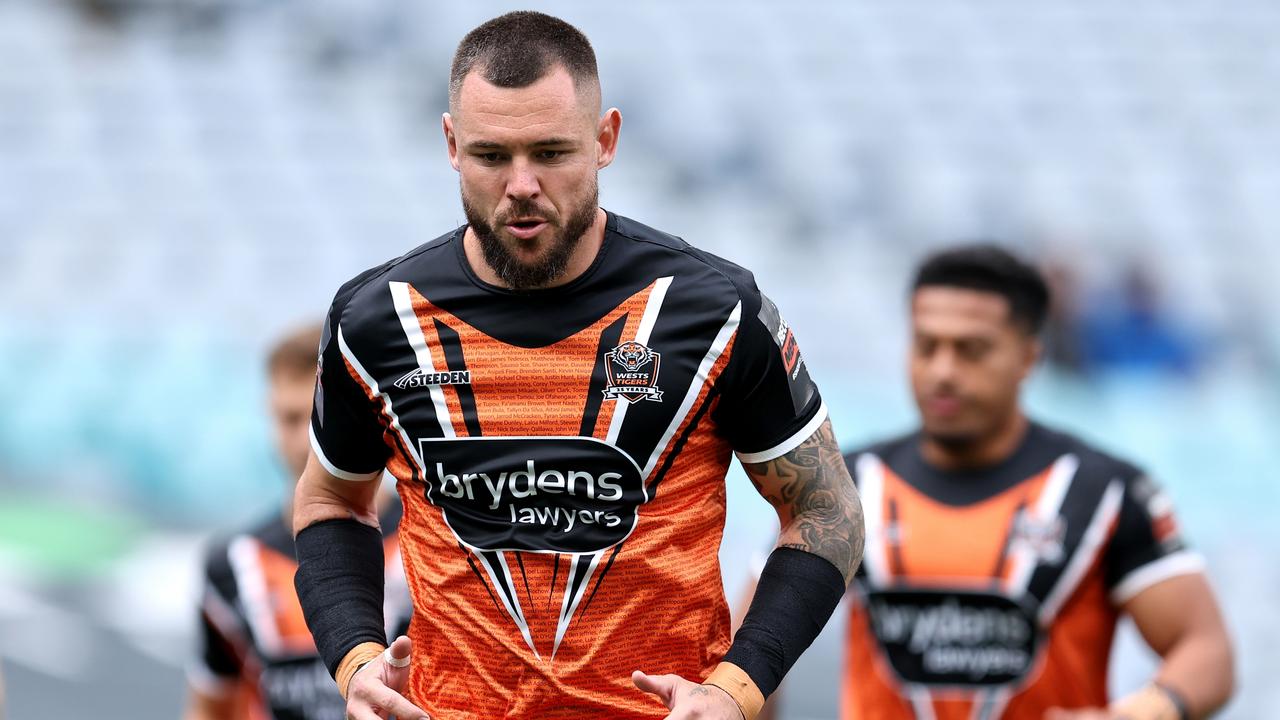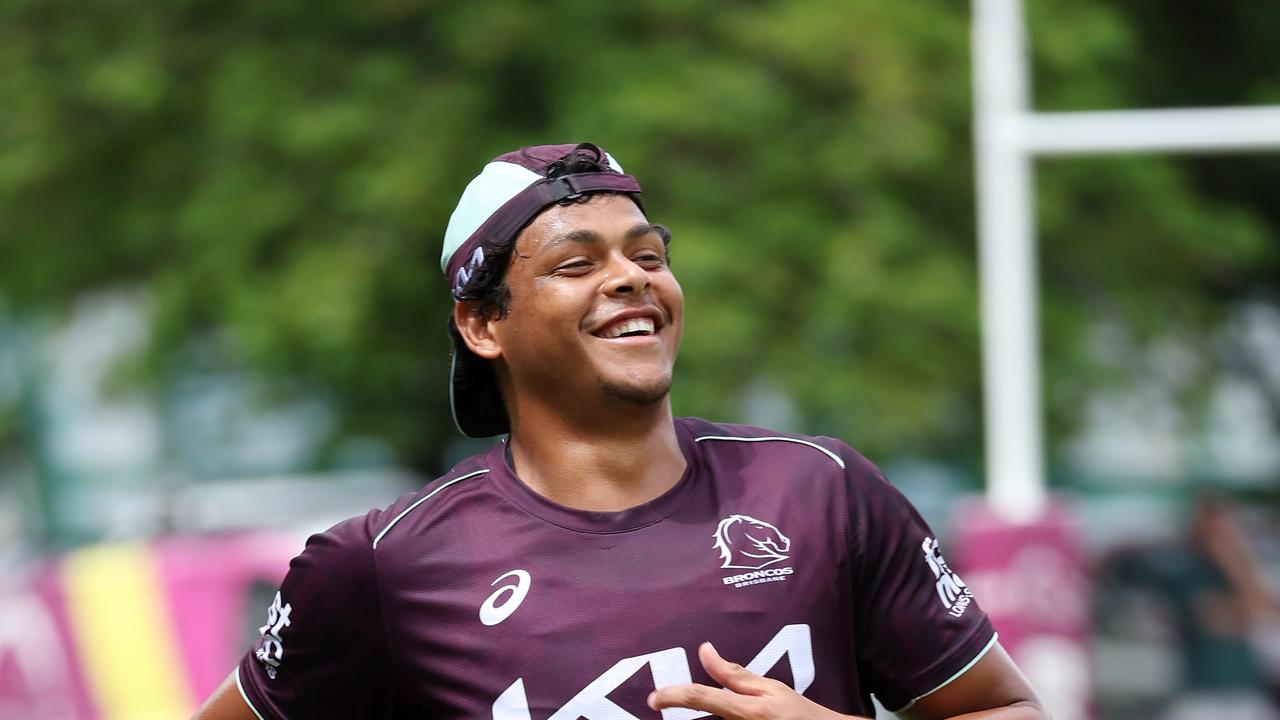NRL Player Survey Results: Racist abuse, agent concerns and mental health worries widespread in league
An exclusive News Corp and RLPA poll of more than 450 players has highlighted a number of issues including whether players consider their club a ‘psychologically safe’ environment. SEE THE RESULTS

Rugby league has received a reminder of its ongoing battles with racism and abuse after it emerged that four players on average from every club were subject to targeted attacks.
The stunning result was revealed as part of an exclusive and wide-ranging poll of more than 450 players conducted by News Corp Australia in partnership with the Rugby League Players Association.
The poll highlighted a number of game-wide related topics including the reasons players leave their club, whether they fear being able to express themselves publicly, whether their club was a psychologically safe environment, and how much their club prioritises mental health.
In part two of the poll, players will have their say on a range of on-field issues including the most underrated in the game, the best coach, which ground they love and least like playing at and where the NRL’s next team should be.
In the poll (see below) players were asked whether they had experienced racism or targeted abuse.
Six per cent of players had been the subject of racism while another eight per cent had been on the end of targeted abuse. The overwhelming majority - 86 per cent - had avoided being on the receiving end but RLPA general manager of player and football operations Jamie Buhrer was quick to point out that any abuse was too much.
“It is pleasing to see that the vast majority of players have not experienced racism or targeted abuse,” Buhrer said.
“However, the 14 per cent that have results in an average of four players in every top 30 squad experiencing racism or targeted abuse, which is never okay.
“That is four players too many and is a sad reflection of how common it is for players to feel culturally and mentally unsafe in their roles as NRL and NRLW players.
“Everyone in the community should be free from abuse, rugby league players included.”
During the past 12 months, the RLPA released a statement saying that abuse in any form was unacceptable after South Sydney superstar Latrell Mitchell was subject to a racist attack after a game against Penrith.
Tyson Jackson was witness to the disgusting incident on Saturday night and believes the horrid racial tirade directed at Latrell Mitchell and Cody Walker left fans feeling unsafe in scenes that should never be repeated.
— CODE NRL (@codenrl) May 13, 2024
STORY | https://t.co/1y9JwWJz0w
âœï¸: @Tyson_Jackson15pic.twitter.com/q8DKL5qoCb
Mitchell and teammate Cody Walker were then targeted earlier this year, prompting the NRL to hand indefinite bans to two spectators.
Sadly they aren’t alone. The likes of Tyson Frizell, Jaxson Paulo, Kyle Feldt, Jarome Luai, Jordan Riki and Tesi Niu have been targeted online.
Players have received death threats, racism taunts and told to self-harm for some of their on-field performances.
Warriors half Chanel Harris-Tavita was the subject of abhorrent abuse after missing shots at goal earlier this year.
LACK OF ‘PSYCHOLOGICAL SAFETY’
The vast majority of NRL players believe their clubs promote a psychologically safe environment where they can speak up and share their opinions, although there is an alarming gulf between the best and worst clubs across the game.
Players were asked whether they felt comfortable expressing their views within their clubs, whether they believed their club was a psychological safe environment, and whether their club prioritised mental health.

Alarmingly, there was a significant disparity between top and bottom clubs when it came to creating a “very or extremely” comfortable and safe environment for players to express their opinions.
While 84 per cent of players agree their club promotes an environment that makes them feel safe and respected when speaking up and sharing opinions, the number dips considerably when players are asked whether it was a “very or extremely” safe environment.
The numbers also vary dramatically from best to worst.
At the best club, 88 per cent of players felt very or extremely psychologically safe and respected when offering their opinions. At the worst, it was a lowly 18 per cent.
The gulf between the best and worst highlights the gaping divide between the clubs creating a nurturing environment and those who don’t, potentially giving the better clubs a competitive advantage in signing and retaining players.
“One of the rarely discussed issues we know exists is the psychological safety of players in clubs and the fear of retribution that comes with speaking your mind or speaking out,” RLPA chief executive Clint Newton said.
“Our key metric is identifying how many players feel ‘very’ or extremely’ psychologically safe at clubs because in such intense high-performance environments that can often fall off the list of priorities.
“Based on the differences between the best and worst performing clubs on psychological safety, those incremental differences can be the difference in keeping your best players at a club and teams being in a position to win a premiership.
“As an industry we need to ensure we are considering psychological safety of players, and all clubs should be aiming for high marks for this metric.”
One player, speaking on the condition of anonymity, said there was a direct correlation between the club environment and winning.
“Teams I’ve been a part of where players feel safe and valued are the most successful on the field,” the player said.
“Encouraging players to speak openly leads to them taking more responsibility on and off the field.”
MIXED MESSAGES ON MENTAL HEALTH
Only 40 per cent of players said they felt very or extremely comfortable expressing their views publicly while two-thirds of players felt their club was very or extremely supportive of prioritising their mental health.
Again, the gap between the best and worst was significant. The best club had a ranking of 83 per cent when it came to being extremely supportive of prioritising mental health. The worst club had a ranking of 20 per cent. The gap between the two shapes as another competitive advantage for the better performers.

NEED TO RESTORE FAITH IN INTEGRITY PROCESSES
The poll, by far the most extensive ever undertaken by the RLPA, also found that:
• less than half of all NRL players are very or extremely trusting of their agent;
• two out of every five players believe the media is positive about the performance of players;
• Only 23 per cent of players believe the media positively report about the personal lives of players;
• Only 40 per cent of players believed the NRL prioritises investigating club breaches as highly as it does player breaches.
The RLPA has called for a review of the integrity process and has urged the NRL to undertake it as soon as possible to restore faith in the system given players believe they are treated differently to the clubs.
“When it comes to player-related breaches, it is clear that the NRL act quickly on these and prioritise having them resolved and more often with a sanction to players and public announcements,” Buhrer said.
“When it comes to the same breaches by anyone else in the industry, the clear perception amongst most players is they are not a priority publicly or privately.
“Often these breaches can be confidential and never see the light of day, or they can be more well known like the case of Ronald Volkman.
“It’s promising that the NRL supports our position on a new integrity body being responsible for this space.
“We believe an integrity review, plus a priority on creating more independence from the NRL and Commission in the process, will prove to players that the game treats breaches by everyone the same.
“That review is sitting with the NRL ready for us to collaborate on, which will deliver better and more consistent outcomes for all the stakeholders and the game, and allow the NRL to focus on other matters which relate to the promotion of the game, players, fans and clubs.”
RLPA chief executive Clint Newtown said it was concerning that less than half of players - 48 per cent - had extreme trust in their agent.
An industry average of 82% of players agreed that they trusted their agent at some level.
“When you consider how much of a player’s salary an agent receives every month, we believe far more than half of our players should be very trusting of their agent, considering the important role they play in our industry,” Newton said.
“Agents collectively will receive more than $15m per season from players’ salary packages. We also know that almost a third of players have had a bad experience with their agents.
“With an agent review on our agenda with the NRL, we believe prioritising that and implementing our recommendations will go a long way to rewarding the good agents and stopping the minority of agents giving the rest a bad name.”
The RLPA will reveal further details of their own extensive polling of players – dubbed the players pulse - later this year.




